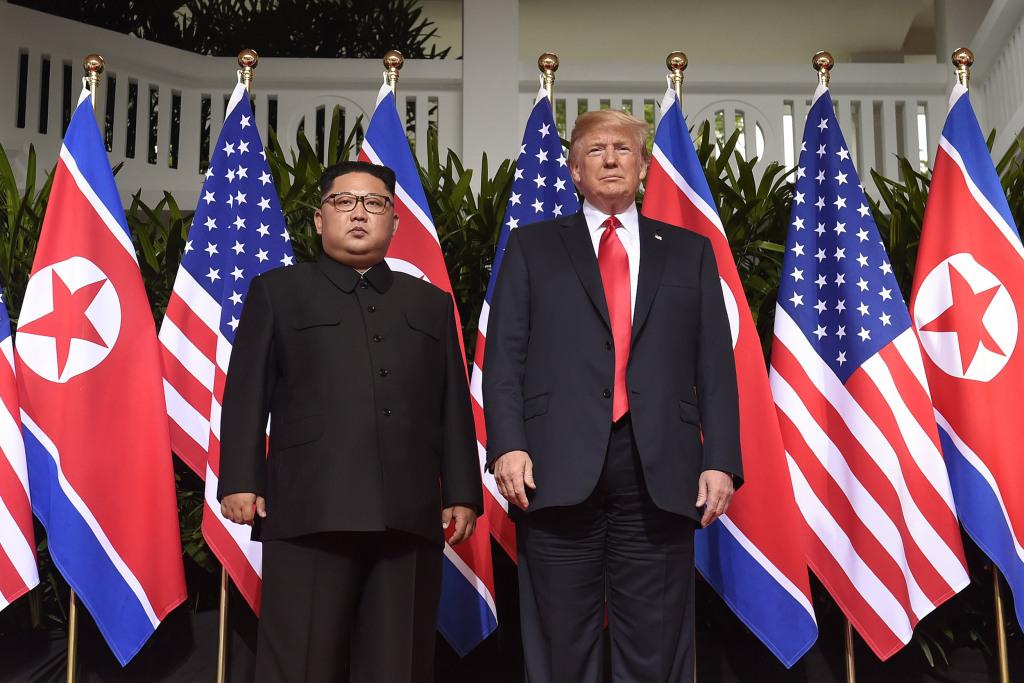In a display of defiance and determination, North Korea’s leader Kim Jong Un has announced his intention to implement the toughest anti-US policy to date, just days before President-elect Donald Trump is set to take office. This bold stance marks a new chapter in the complex and often volatile relationship between the isolated regime and the world’s superpower. As tensions continue to simmer on the international stage, all eyes are on Pyongyang to see how this latest move will shape the future of US-North Korea relations.
Kim Jong Un Declares Strongest Anti-US Stance Yet
Kim Jong Un’s latest declaration signals a significant escalation in tensions between North Korea and the United States. In a statement released by state media, the North Korean leader vowed to adopt the toughest anti-US policy to date. This move comes just days before the inauguration of President-elect Donald Trump, raising concerns about the potential for further conflict in the region.
The announcement from Kim Jong Un includes plans to bolster North Korea’s nuclear capabilities and strengthen its military forces. The regime has also threatened to take unspecified actions against the US, warning of dire consequences if Washington continues its “hostile” policies towards Pyongyang. With the incoming Trump administration facing a volatile situation on the Korean Peninsula, the international community is closely monitoring the developments and hoping for a peaceful resolution to the escalating tensions.
Implications of North Koreas Toughened Policy Towards the US
Kim Jong Un, the leader of North Korea, has promised to implement the toughest anti-US policy to date, just before the inauguration of President-elect Donald Trump. This declaration comes amid rising tensions between the two countries, with North Korea expressing dissatisfaction with the current state of relations.
The implications of North Korea’s toughened policy towards the US are significant, as it could lead to further escalation of conflict and strained diplomatic relations. With Kim Jong Un’s vow to strengthen the country’s nuclear capabilities and develop more advanced weapons systems, the stability of the Korean Peninsula is at risk. The international community is closely monitoring the situation, as any military action or provocation from North Korea could have far-reaching consequences for global security.
Potential Challenges for US-North Korea Relations under Trump Administration
North Korea’s Kim Jong Un has recently declared that the country will adopt its toughest anti-US policy yet, just before the Trump administration takes office. This announcement has raised concerns about the potential challenges that may arise in US-North Korea relations in the coming months. Here are some key factors to consider:
- Escalation in tension: With North Korea vowing to strengthen its anti-US stance, there is a possibility of increased tensions between the two countries.
- Nuclear capabilities: North Korea’s continued development of nuclear weapons poses a significant challenge for the Trump administration in its efforts to denuclearize the Korean Peninsula.
Additionally, the lack of diplomatic communication between the two countries could hinder efforts to resolve conflicts peacefully. It remains to be seen how the incoming administration will navigate these challenges in the months ahead.
| Challenge | Potential Impact |
|---|---|
| Lack of communication | Difficulty in resolving conflicts peacefully |
| Nuclear weapons development | Hindrance in denuclearization efforts |
Strategies for Diplomatic Engagement with North Korea Despite Tensions
Kim Jong Un has recently declared the implementation of the toughest anti-US policy by North Korea, just before President Trump takes office. The escalating tensions between the two countries have raised concerns about the prospects of diplomatic engagement with North Korea. Despite the challenging circumstances, there are several strategies that can be considered to foster dialogue and reduce hostilities:
- Maintaining Open Channels of Communication: It is crucial to keep communication lines open to prevent misunderstandings and potential conflicts. Direct communication channels, such as diplomatic channels or backchannel negotiations, can help facilitate dialogue.
- Engaging in Track II Diplomacy: Track II diplomacy involves unofficial and informal discussions between non-governmental actors from different countries. These interactions can provide a platform for frank discussions and creative solutions to complex issues.
To Conclude
As tensions continue to rise between North Korea and the United States, Kim Jong-un’s latest vow of the toughest anti-US policy serves as a stark reminder of the volatile relations between the two nations. With President-elect Trump set to take office in just a few weeks, the world watches with bated breath to see how this ongoing conflict will unfold. Only time will tell what the future holds for these two nations and the global implications of their actions. Stay tuned as this complex geopolitical drama continues to unfold.


